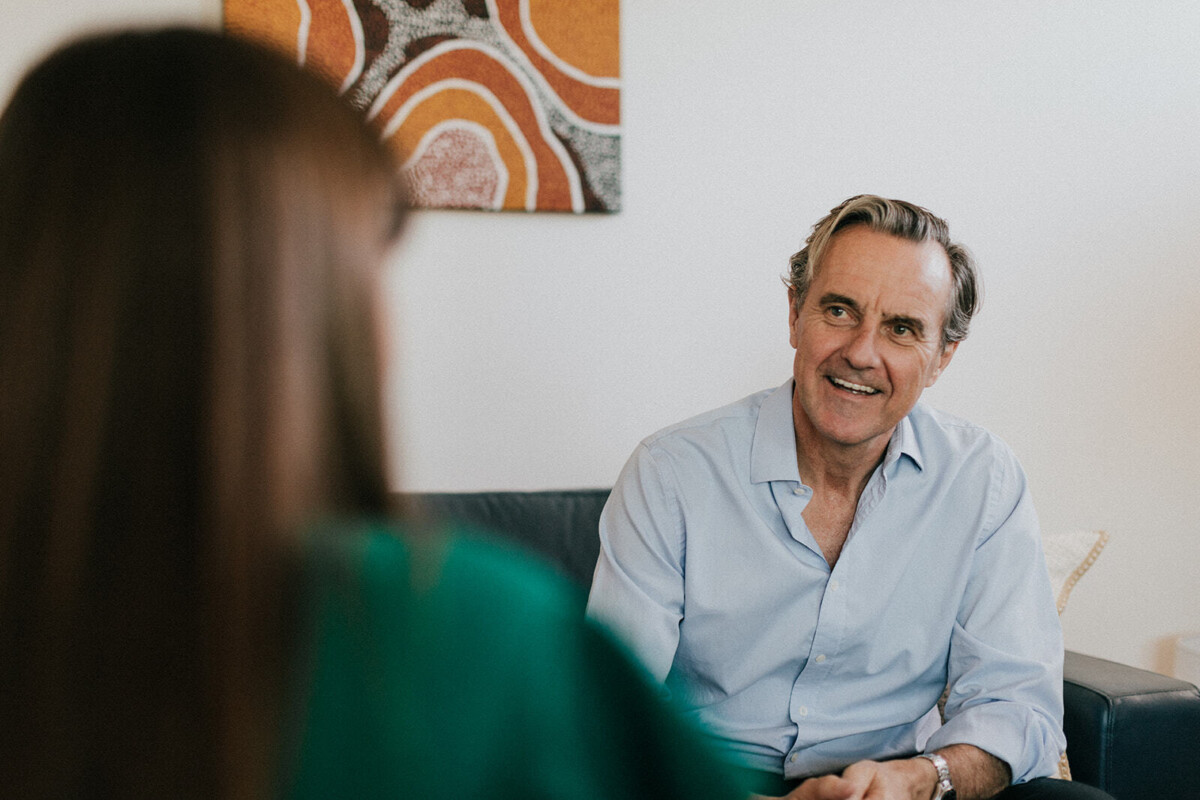
How Do You Handle Feedback?
BY Malcolm Doig
Insights
How do you handle feedback?
The way we accept feedback reveals a great deal about our capacity for Adaptive Leadership.
In Rudyard Kipling's poem If, there is a stanza which reads:
...you can meet with Triump and Disaster
And treat those two imposters both the same...
The relationship that we have with perceived “success” or “failure” lies at the heart of much of Malcolm Doig’s leadership training and coaching work.
With considerable experience in working within, and now coaching, high-performing teams, Malcolm believes that one of the keys to genuinely transformational, adaptive leadership is the way we respond to feedback from our endeavors – both “successes” and “failures”.
“If we want to excel, and become the best version of ourselves, both in our work and in our personal life,” Malcolm explains “the research by people like Peter Senge and others, suggests that we must focus on learning, not performance. If we focus on performance, then depending on our operating environment, or working culture, and our own mindsets around “failure”, there is a likelihood that we will become risk averse, as will our teams. This can develop a limiting, fear of failure, that has real business impact. Our people will struggle to make bold decisions, they set less risky goals and will be reactive, unprogressive. If, instead, we focus on learning, then we’ll empower people, and ourselves. We’ll learn from both our successes and our failures much more quickly, which means our performance must improve! We’ll take more risks because we’ll have had the courage to discuss all the things that could go wrong and put plans in place to mitigate them.”
For a team to be high-performing, the leader needs to cultivate an open and encouraging culture of feedback. People who are threatened by feedback can be coached to understand this is not personal criticism. A feedback culture should be aimed at helping us all be at our best. Rather than a fear-based culture, a safe-learning environment must be created.
But, for many of us, feedback can be hard to take.
“Think of how you respond to feedback, whether negative or constructive, in both your personal and professional life”, says Malcolm. ‘What is the self-talk that happens around that? How kind, how forgiving, are you to yourself? What does your inner voice, your inner critic sound like? The way that you talk with yourself reveals a lot about your relationship with yourself. It’s this inner voice that runs us.”
“If you can forgive yourself for your mistakes, and see them as learning opportunities, you’ll be a better leader”, explains Malcolm, “as you’ll be better at forgiving mistakes in others and seeing their growth potential. You will be better at creating that safe-learning environment. Whatever the relationship you have with yourself is like, that will radiate into your relationship with others”.
For most of us, this inner narrative, this set of beliefs about who and what we are, and what we are capable of, is laid down when we are children. “Our inner voice often sounds like our inner child”, says Malcolm. “And all those patterns that imprinted on us when we were growing up as children. Some were helpful beliefs that still serve us, but other self-critical beliefs we hold, we still use to undermine ourselves”
Our inner-child’s reaction to feedback can be boiled down to four major themes:
- Do I feel safe here?
- Do I have enough of what I need?
- Do I belong? Am I liked?
- Am I good enough? Am I valued?
When we fail, when we make a mistake, are we forgiving to ourselves, or unnecessarily harsh?
If we fall into the unforgiving camp, what then? Is all hope lost?

Not at all. Happily, as humans, we can re-wire our brain to change, if we’re prepared to put in the effort. For several years, Malcolm has been using a helpful activity with clients to rewire the negative beliefs of their inner child, and to help them achieve transformational change.
Malcolm suggests his clients picture their childhood selves, he even carries a photo of his eight-year-old self on his phone. When we are confronted with feedback, Malcolm encourages clients to speak to that photograph, to that inner child, about the feedback.
“When we receive criticism, we tend to react in similar types of ways” Malcolm explains. “We may chastise ourselves, we may feel hurt, we may feel angry – at ourselves and others. These are the normal reactions of children. We’re all carrying around these big black bags of shame, hurt, anger and frustration that were wired into our brains during our formative years. So, just as you would only speak kindly to a child’s upset, helping them to forgive themselves, telling them that it’s a learning experience, that that it’s fixable, and so on, this is the way we can learn to speak to our inner selves. We must be kind, and forgiving, to ourselves.
The child-hood photo is a tool many clients find easier to grasp than the more abstract concept of inner dialogue. In using this tool, we can start to re-examine the patchwork of stories about who we think are. The more we play with this idea and practice speaking kindlier to our inner child, the more we start to be able to re-wire our brains. We stop repeating these same patterns and instead, in our interior conversations, we start to weave a new tapestry about who we are becoming.”
Back to Rudyard Kipling’s poem “If”, he goes on to say:
If you can fill the unforgiving minute
With sixty seconds’ worth of distance run,
Yours is the Earth and everything that’s in it,
And – which is more – you’ll be a man my son!
Putting aside the implied sexism from over 100 years ago, perhaps a modern-day version could be “And – which is more – you’ll be a Human Being!”
Once we’ve changed the tone of the conversations we have with ourselves, Malcolm explains, we can then move to a deeper understanding of how our beliefs are both helpful and self-limiting. In this newly aware state, we can begin to speak differently with ourselves, and start to create new possibilities of how we see ourselves. Eventually, if we practise, our reaction to feedback will become more neutral, welcoming even, instead of feeling hurt or anger. We will be living in our own safe learning environment, and can thus begin to lead ourselves, our teams and our families in a more inspired, transformational way.
Our growth accelerates, and when this occurs in teams, where the focus is on team-learning everyone becomes more productive and more value is created for the organisation.
Some reflective questions for you to consider….
- How self-critical are you? What are the broader implications of this for you and the people around you?
- How might you start to use feedback to improve your relationship with yourself?
- With your team or organisation, what focus to you place on learning vs performance or productivity? What would it take to shift that? What might be the benefits?